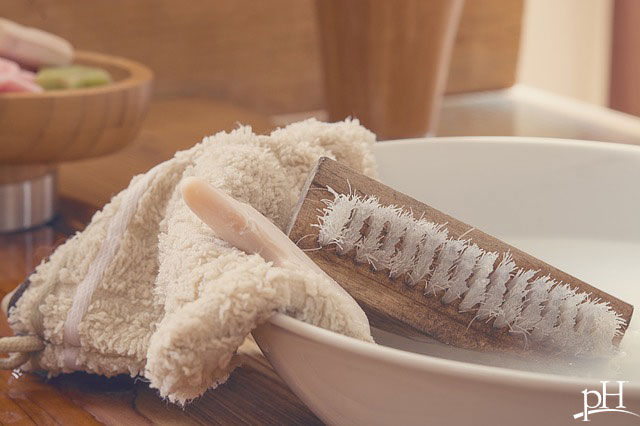The dirty secret of antibacterial soaps
9 years ago | Toxins
By pH health care professionals
For years, scientific studies have been sounding the alarm that antibacterial soaps may do more harm than good. Now, the U.S. Food and Drug Administration is putting its foot down, issuing a ban against 19 ingredients, including the most common ones -- triclosan and triclocarban. Makers of these soaps have one year to remove the banned ingredients; luckily, some have already begun phasing them out. The reason? These ingredients may be putting your health at risk, and quite frankly, they’re no better than regular ol’ soap and water!
Here’s the scoop:
The FDA required that manufacturers of antibacterial soaps provide data regarding the safety and effectiveness of the specified ingredients, but what little data were submitted apparently missed the mark.
Some of the main concerns are that:
-
Antibacterial soaps don’t protect you from germs or illness any better than regular soaps.
-
Antibacterial soaps may contribute to the growing problem of stronger, more resistant bacteria. The bacteria are routinely exposed to the germ-fighting ingredients and adapt to them.
-
Animal studies have shown that triclosan can disrupt hormones, affecting estrogen, testosterone and thyroid hormones. Not enough is known about its effects on humans, but triclosan has been detected in breast milk, urine and blood, raising some red flags.
-
Some research warns triclosan may contribute to the development of cancer.
“Companies will no longer be able to market antibacterial washes with these ingredients because manufacturers did not demonstrate that the ingredients are both safe for long-term daily use and more effective than plain soap and water in preventing illness and the spread of certain infections,” the government agency said.
These include many popular soaps that may be marketed as “antibacterial,” “antiseptic” or “antimicrobial.” But the ban does not apply to hand sanitizers or wipes, or antibacterial products used in health care settings.
So when it comes to avoiding sickness and stopping germs from spreading, your best bet is still washing your hands with soap and water -- no antibacterial needed.
Enjoy Your Healthy Life!
The pH professional health care team includes recognized experts from a variety of health care and related disciplines, including physicians, attorneys, nutritionists, nurses and certified fitness instructors. To learn more about the pH Health Care Team, click here.



